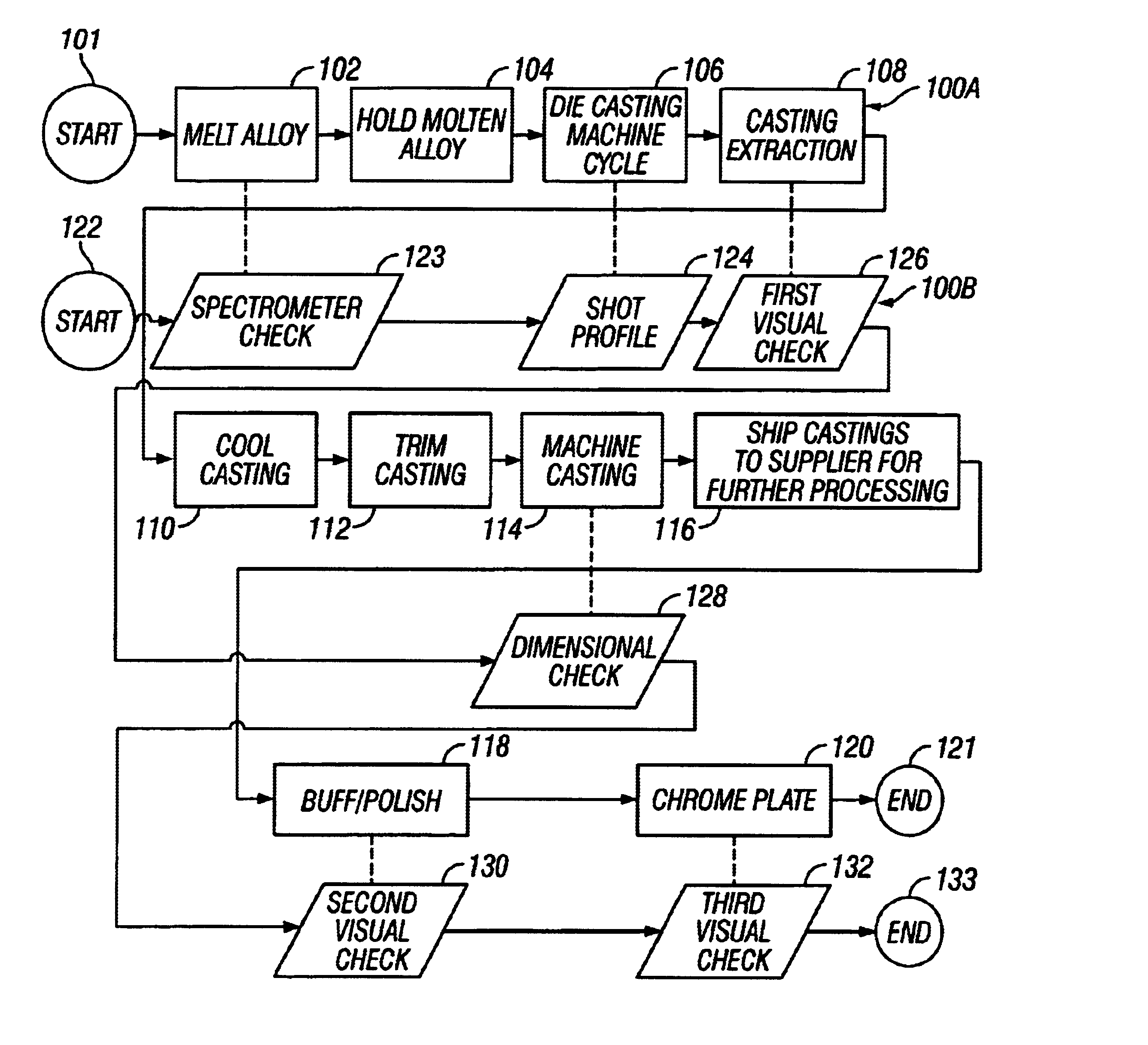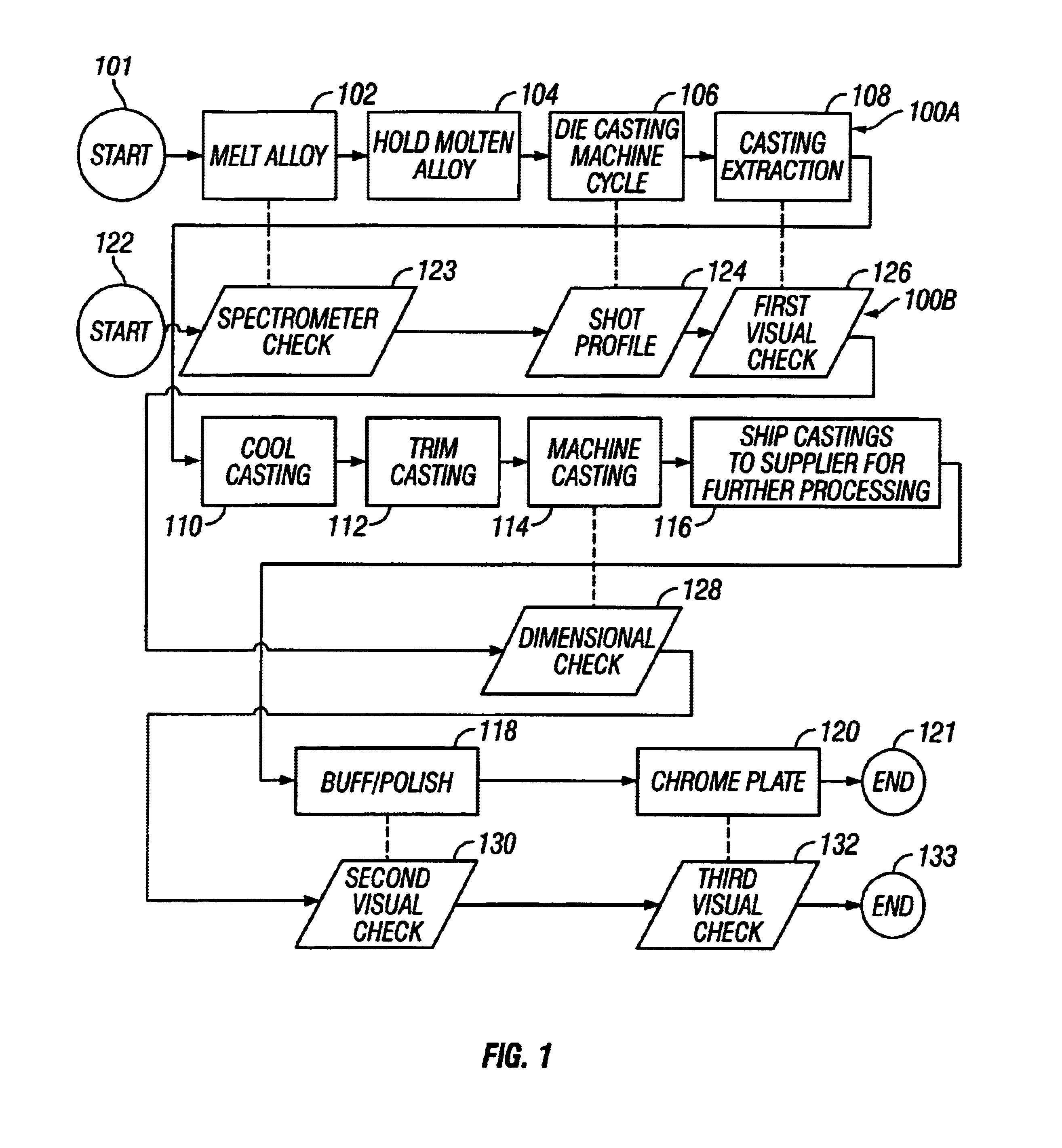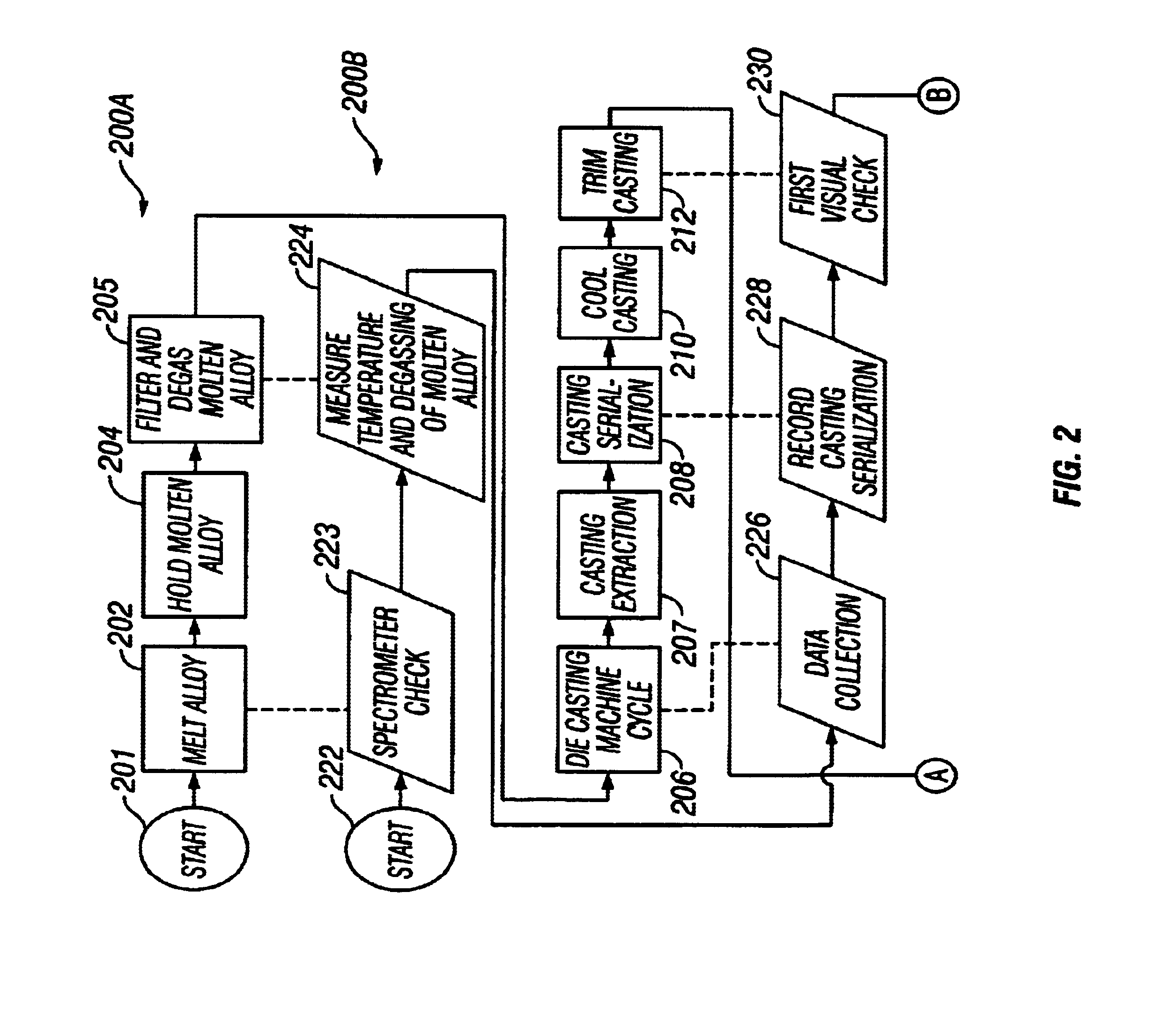Die casting process incorporating computerized pattern recognition techniques
a pattern recognition and computerized technology, applied in the field of die casting processes, can solve the problems of aluminum alloy die castings produced at the first facility often proving unsuitable for their intended later use, and the operation of multiple dies is usually slower
- Summary
- Abstract
- Description
- Claims
- Application Information
AI Technical Summary
Problems solved by technology
Method used
Image
Examples
Embodiment Construction
FIG. 1 shows a conventional die casting process 100a suitable for use in the manufacture of die castings, for example, chrome-plated aluminum alloy rocker cover and rocker housing die castings. The die casting process 100a commences at step 101 and, proceeding on to step 102, a primary furnace or similar heating device is used to melt a metal or metal alloy, for example, an aluminum alloy, by heating an amount of the solid metal or metal alloy to an elevated temperature above its melting point. For example, if an aluminum alloy was to be melted using the primary furnace, a temperature of about 1,300 degrees Fahrenheit would be suitable. Once melted, the molten metal or metal alloy is transported, for example, using a bull ladle, to a secondary furnace or similar heating device where the molten metal or metal alloy is held, at step 104, in advance of initiation of a die cast machine cycle, at step 106, by a die cast machine. Proceeding on to step 106, a die cast machine cycle is init...
PUM
| Property | Measurement | Unit |
|---|---|---|
| temperature | aaaaa | aaaaa |
| temperature | aaaaa | aaaaa |
| temperature | aaaaa | aaaaa |
Abstract
Description
Claims
Application Information
 Login to View More
Login to View More - R&D
- Intellectual Property
- Life Sciences
- Materials
- Tech Scout
- Unparalleled Data Quality
- Higher Quality Content
- 60% Fewer Hallucinations
Browse by: Latest US Patents, China's latest patents, Technical Efficacy Thesaurus, Application Domain, Technology Topic, Popular Technical Reports.
© 2025 PatSnap. All rights reserved.Legal|Privacy policy|Modern Slavery Act Transparency Statement|Sitemap|About US| Contact US: help@patsnap.com



